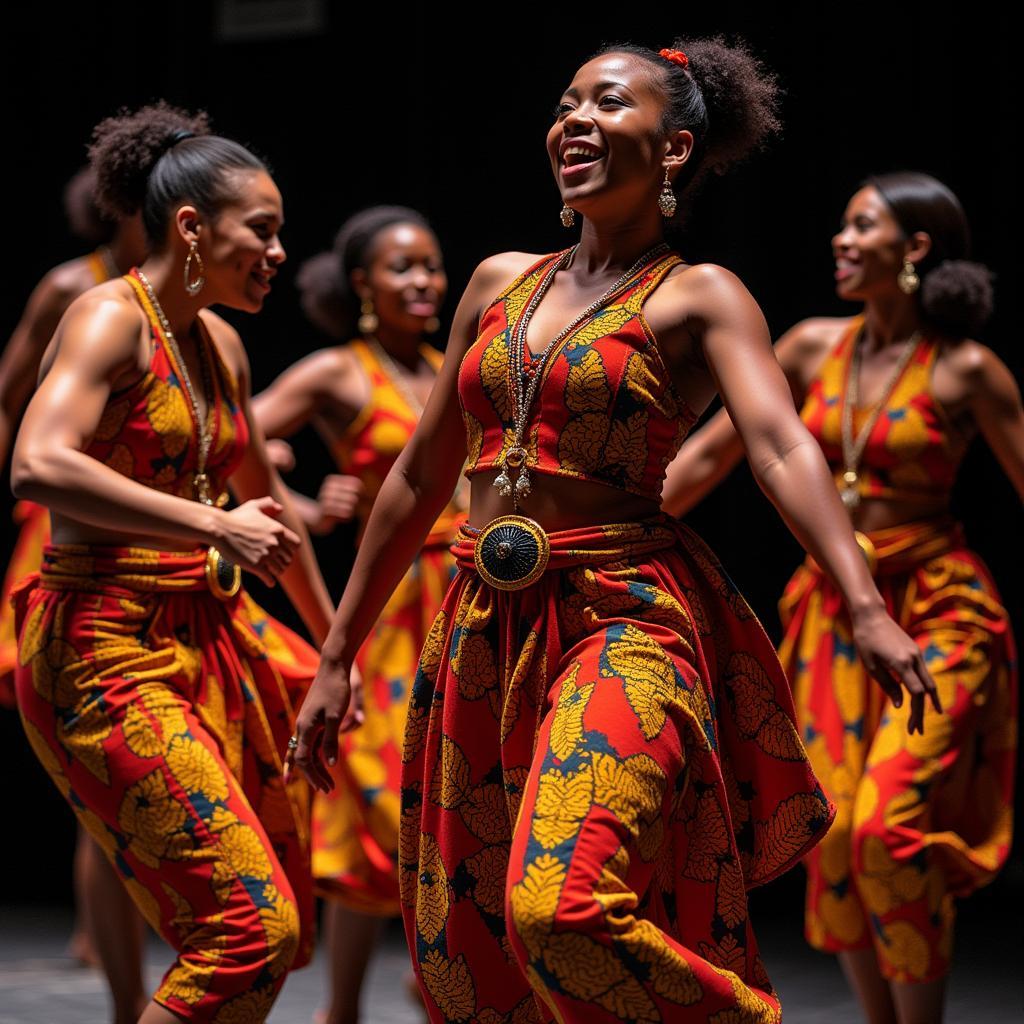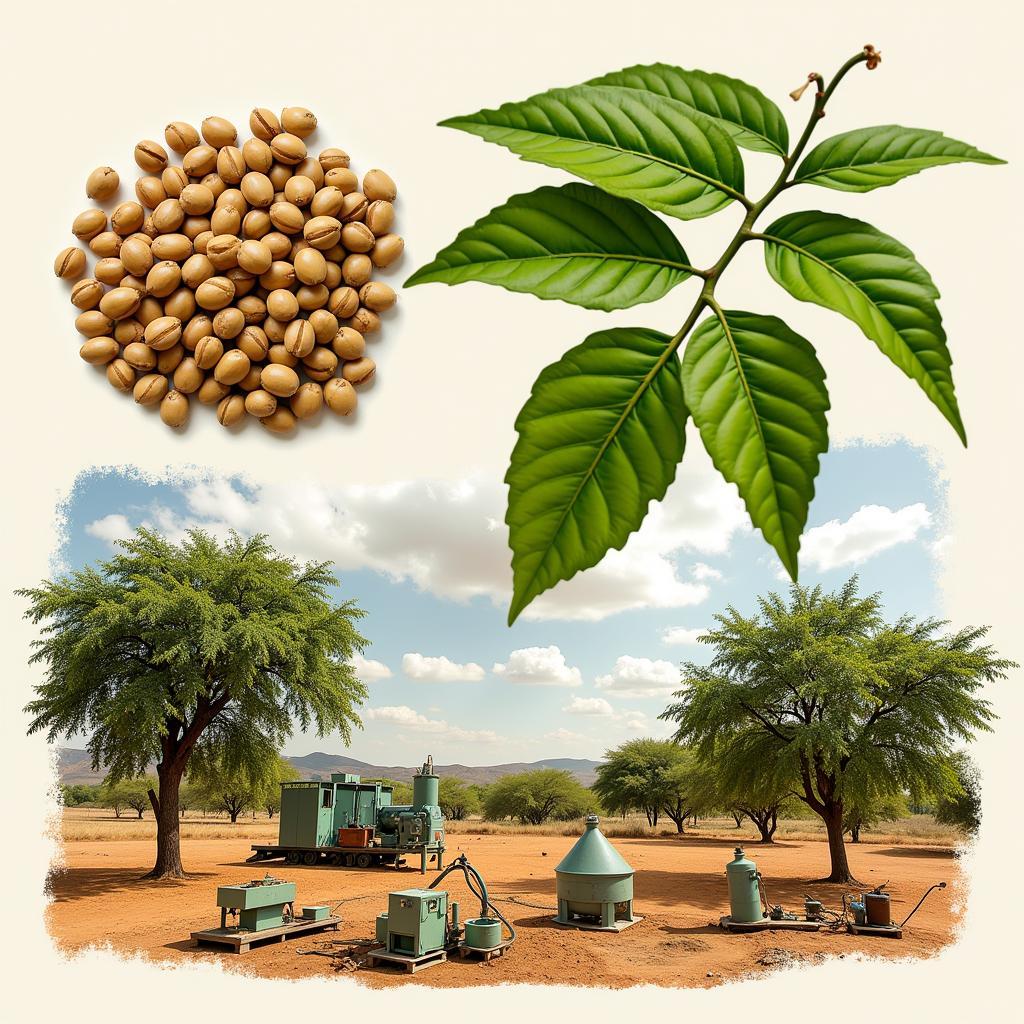Celebrating the African Curvy Woman: Beauty, Strength, and Cultural Significance
The African curvy woman has long been a symbol of beauty, fertility, and strength across the diverse cultures of the continent. This article delves into the rich history, cultural significance, and evolving perceptions of the African curvy woman, exploring how traditional ideals intersect with modern influences.
The Historical Significance of Curves in African Culture
For centuries, curves have been celebrated in many African societies. They represent not only physical attractiveness but also a connection to motherhood, abundance, and the life-giving power of nature. This appreciation for fuller figures is deeply rooted in traditional beliefs and customs, often associated with fertility, prosperity, and good health. In some cultures, a woman’s curves were seen as a sign of her ability to bear and nurture children, ensuring the continuation of the lineage. This reverence for the curvy physique predates Western influence and reflects a unique cultural perspective on beauty and body image.
The African Curvy Woman in Art and Literature
The appreciation for the curvy form is evident in various forms of African art and literature. Traditional sculptures, paintings, and textiles often depict women with full figures, emphasizing their curves and celebrating their femininity. These artistic representations serve as a testament to the enduring cultural significance of the curvy woman throughout history. Likewise, oral traditions and folktales often feature strong, curvy female characters, further highlighting their importance within the community. These stories often celebrate their resilience, wisdom, and leadership, reinforcing the positive image of the curvy woman in African culture.
Modern Perceptions and the Influence of Western Media
While traditional values continue to hold sway, the influence of Western media has introduced new perspectives on beauty and body image. The proliferation of thin ideals in fashion magazines and on television has led to some questioning the traditional celebration of curves. This has created a complex dialogue surrounding body image, particularly among younger generations. However, many African women are reclaiming and celebrating their curves, challenging Westernized beauty standards and reaffirming their cultural heritage. This resurgence of body positivity emphasizes the importance of self-love and acceptance, regardless of shape or size.
Fashion and the Celebration of the African Curvy Woman
The fashion industry in Africa is increasingly embracing the curvy figure, with designers creating clothing that flatters and celebrates all body types. This shift towards inclusivity is a reflection of the growing movement towards body positivity and the recognition of the diverse beauty standards across the continent. From traditional garments adapted for the modern woman to contemporary designs that accentuate curves, African fashion is becoming increasingly diverse and representative. This evolution not only empowers women but also creates a more vibrant and dynamic fashion landscape.
Health and Well-being: Beyond Aesthetics
It is crucial to emphasize that the celebration of curves is not just about aesthetics. A healthy lifestyle, encompassing balanced nutrition and regular exercise, is essential for overall well-being, regardless of body shape. Promoting health and self-care should always be prioritized over conforming to any specific body ideal. The focus should be on embracing a healthy and fulfilling life, where body positivity and self-acceptance are paramount.
Conclusion
The African curvy woman remains a powerful symbol of beauty, strength, and cultural heritage. While modern influences have introduced new perspectives, the traditional appreciation for curves continues to hold a significant place in African societies. Embracing body positivity and celebrating the diversity of beauty are essential for promoting self-love and acceptance among all women. The African curvy woman stands as a testament to the enduring power of cultural traditions and the evolving understanding of beauty in the modern world.
FAQ
-
What is the traditional significance of curves in African culture?
Curves have historically been associated with fertility, prosperity, and good health in many African cultures. -
How has Western media influenced perceptions of beauty in Africa?
Western media has introduced thinner ideals of beauty, leading to a complex dialogue surrounding body image in Africa. -
How is the fashion industry responding to the celebration of curves in Africa?
African designers are increasingly creating clothing that flatters and celebrates all body types, reflecting a growing movement towards inclusivity. -
Why is it important to prioritize health and well-being beyond aesthetics?
Health and self-care are essential for overall well-being, regardless of body shape, and should be prioritized over conforming to any specific body ideal. -
What does the African curvy woman symbolize in contemporary society?
The African curvy woman symbolizes the enduring power of cultural traditions and the evolving understanding of beauty in the modern world.
Common questions about this topic
- What are the different beauty standards across Africa?
- How do different African countries celebrate curvy women?
- Are there any negative stereotypes associated with curvy women in Africa?
- How can I learn more about African culture and traditions related to body image?
Suggestions for further reading:
- Check out our article on “African Traditional Clothing and its Significance.”
- Explore our blog post about “Body Positivity and Self-Love in African Culture.”
For any support, please contact us: Phone: +255768904061, Email: kaka.mag@gmail.com or visit us at: Mbarali DC Mawindi, Kangaga, Tanzania. We have a 24/7 customer support team.



